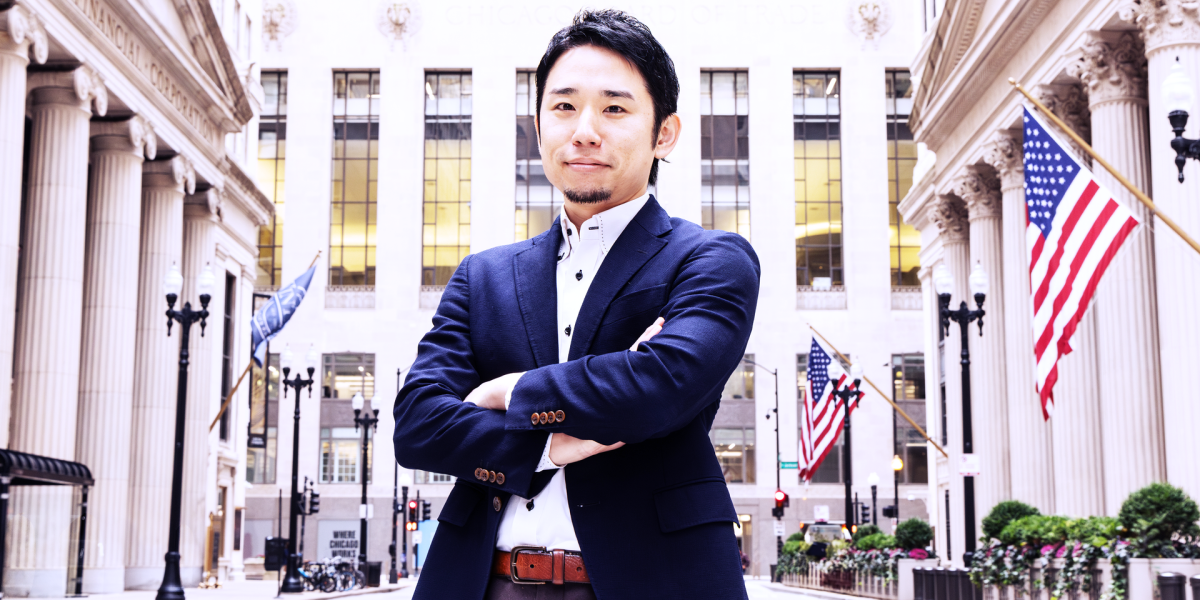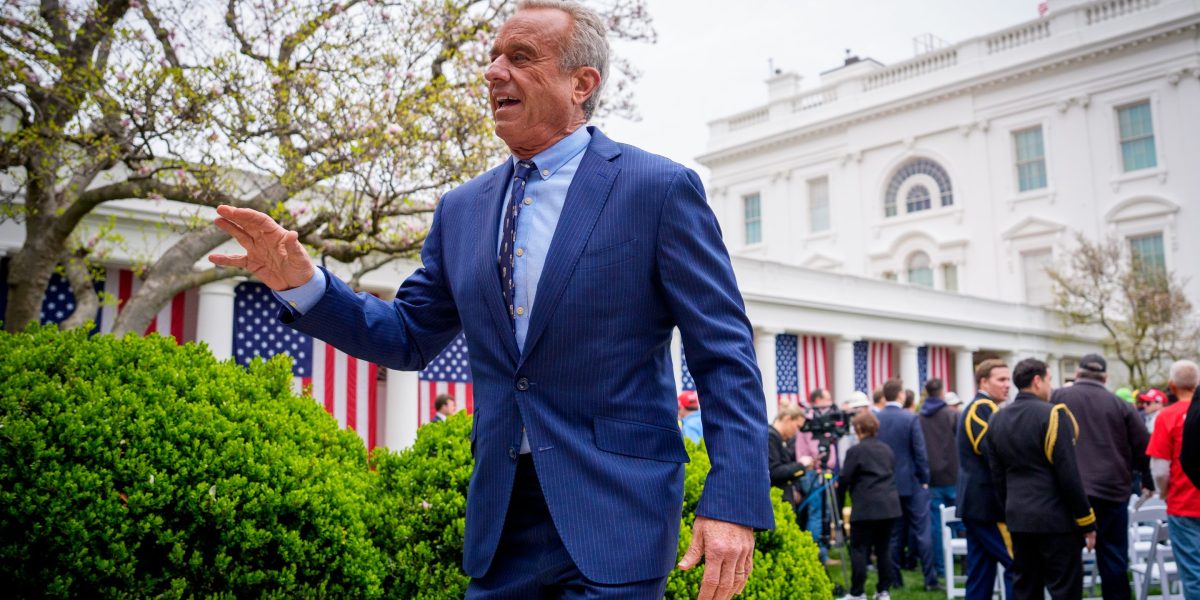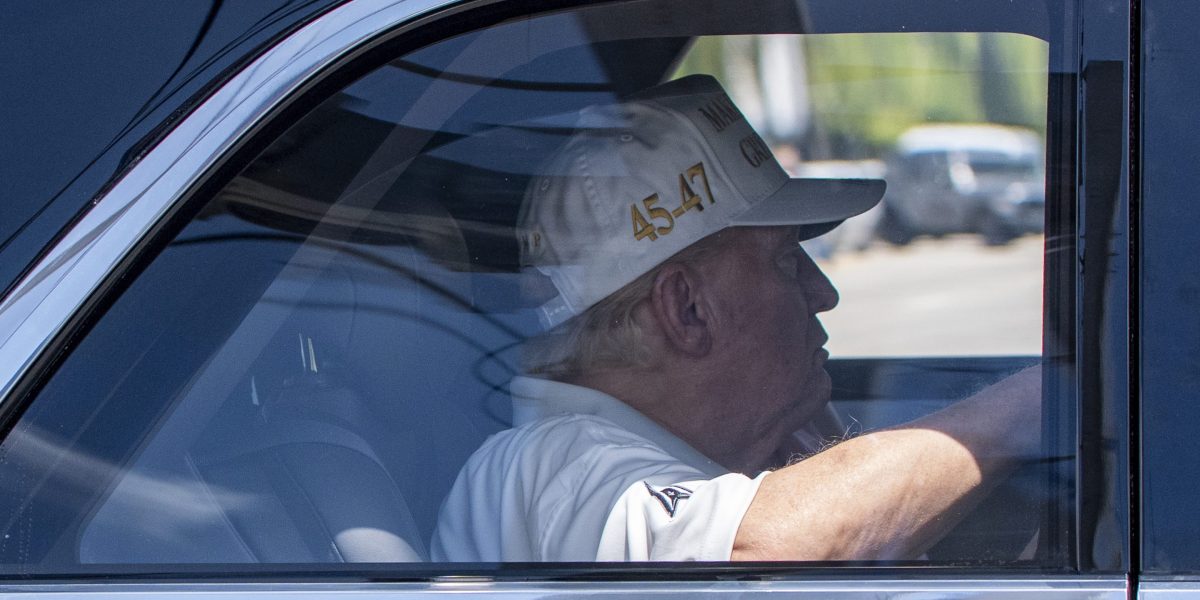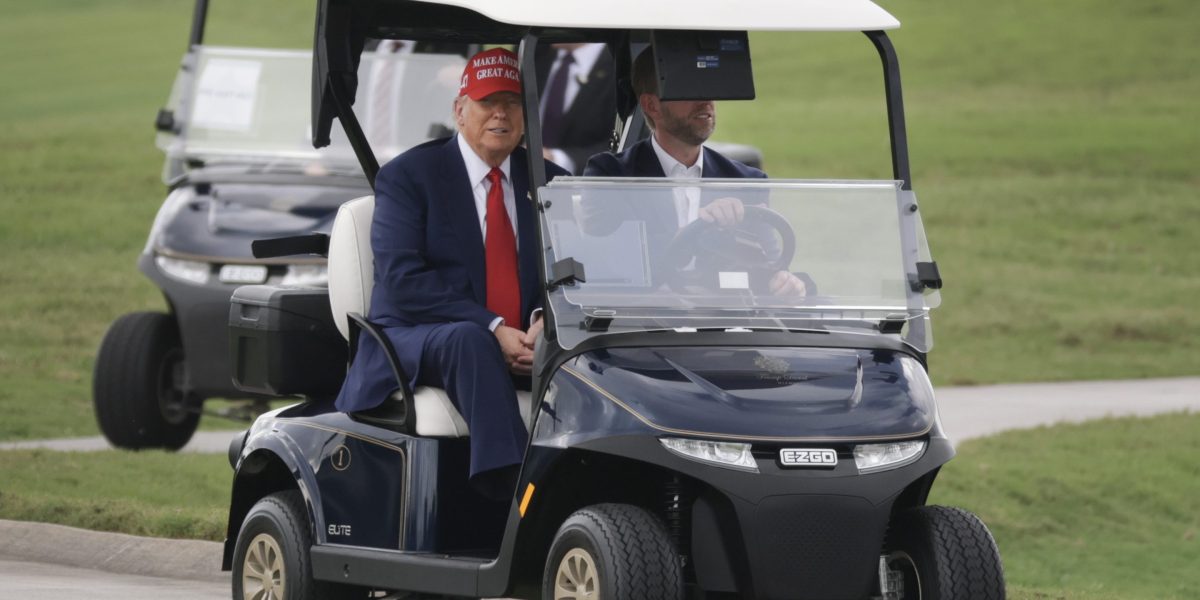U.S. Health Secretary Robert F. Kennedy, Jr. traveled to West Texas on Sunday after a second unvaccinated school-aged child died from a measles-related illness.
Ahead of a “Make America Healthy Again” tour across southwestern U.S., Kennedy said in a social media post that he was in Gaines County to comfort families who had to bury two young children who have died. Seminole is the epicenter of a measles outbreak that started in late January and continues to swell, with nearly 500 cases in Texas alone.
He said he was also working with Texas health officials to “control the measles outbreak.”
The child did not have underlying health conditions, and died Thursday from “what the child’s doctors described as measles pulmonary failure,” the Texas State Department of State Health Services said Sunday in a news release. Aaron Davis, a spokesperson for UMC Health System in Lubbock, Texas, said that the child was “receiving treatment for complications of measles while hospitalized.”
This is the third known measles-related death tied to this outbreak. One was another school-aged child in Texas and the other was an adult in New Mexico. Neither were vaccinated.
Kennedy, an anti-vaccine advocate before ascending to the role of nation’s top health secretary earlier this year, has resisted urging widespread vaccinations as the measles outbreak has worsened under his watch.
“The most effective way to prevent the spread of measles is the MMR vaccine,” Kennedy said in a lengthy statement posted on X. The measles, mumps and rubella vaccine has been used safely for more than 60 years and is 97% effective against measles after two doses.
U.S. Centers for Disease Control and Prevention teams have been “redeployed,” Kennedy added, although the nation’s public health agency never relayed it had pulled back during the growing crisis. Neither the CDC nor the state health department included the death in their measles reports issued Friday, but added it to their counts Sunday.
Nationwide, the U.S. has more than double the number of measles cases it saw in all of 2024.
More than two months in, the West Texas outbreak is believed to have spread to New Mexico, Oklahoma and Kansas, sickening nearly 570 people. The World Health Organization also reported cases related to Texas in Mexico. The number of cases in Texas shot up by 81 between March 28 and April 4, and 16 more people were hospitalized.
Republican U.S. Sen. Bill Cassidy from Louisiana, a liver doctor whose vote helped cinch Kennedy’s confirmation, called Sunday for stronger messaging from health officials in a post on X.
“Everyone should be vaccinated! There is no treatment for measles. No benefit to getting measles,” he wrote. “Top health officials should say so unequivocally b/4 another child dies.”
A CDC spokesperson noted the efficacy of the measles vaccine Sunday but stopped short of calling on people to get it.
Departing from long-standing public health messaging around vaccination, the spokesperson called the decision a “personal one” and said people should talk to their doctor and “should be informed about the potential risks and benefits associated with vaccines.”
Misinformation about how to prevent and treat measles is hindering a robust public health response, including claims about vitamin A supplements that have been pushed by Kennedy and holistic medicine supporters despite doctors’ warnings that it should be given under a physician’s orders and that too much can be dangerous.
Doctors at Covenant Children’s Hospital in Lubbock, where the first measles death occurred, say they’ve treated fewer than 10 children for liver issues from vitamin A toxicity, which they found when running routine lab tests on undervaccinated children who have measles. Dr. Lara Johnson, chief medical officer, said the patients reported using vitamin A to treat and prevent the virus.
Dr. Peter Marks, the Food and Drug Administration’s former vaccine chief, said responsibility for the death rests with Kennedy and his staff. Marks was forced out of the FDA after disagreements with Kennedy over vaccine safety.
“This is the epitome of an absolute needless death,” Marks told The Associated Press in an interview Sunday. “These kids should get vaccinated — that’s how you prevent people from dying of measles.”
Marks also said he recently warned U.S. senators that more deaths would occur if the administration didn’t mount a more aggressive response to the outbreak. Kennedy has been called to testify before the Senate health committee on Thursday.
Experts and local health officials expect the outbreak to go on for several more months if not a year. In West Texas, the vast majority of cases are in unvaccinated people and children younger than 17.
With several states facing outbreaks of the vaccine-preventable disease — and declining childhood vaccination rates nationwide — some worry that measles may cost the U.S. its status as having eliminated the disease.
Measles is a respiratory virus that can survive in the air for up to two hours. Up to 9 out of 10 people who are susceptible will get the virus if exposed, according to the CDC. The first shot is recommended for children ages 12 to 15 months, and the second for ages 4 to 6 years.
This story was originally featured on Fortune.com
Source link


 Entertainment8 years ago
Entertainment8 years ago
 Politics8 years ago
Politics8 years ago
 Entertainment8 years ago
Entertainment8 years ago
 Entertainment8 years ago
Entertainment8 years ago
 Tech8 years ago
Tech8 years ago
 Tech8 years ago
Tech8 years ago
 Tech8 years ago
Tech8 years ago
 Politics8 years ago
Politics8 years ago






